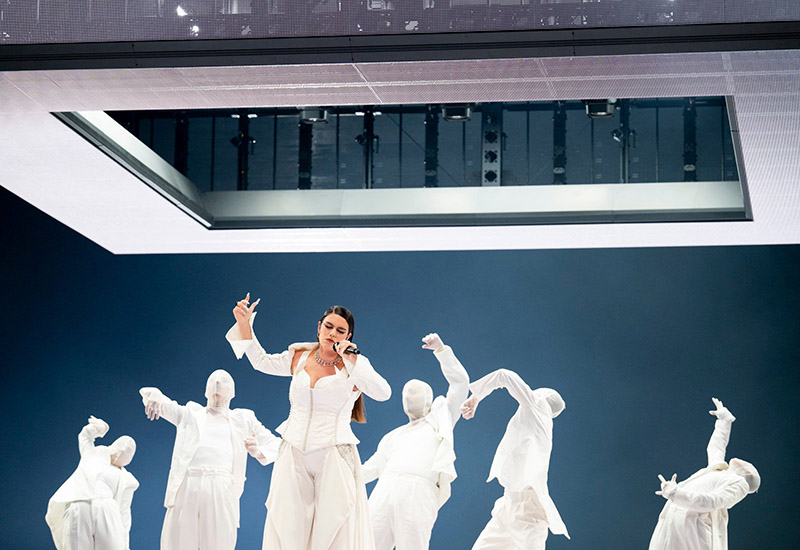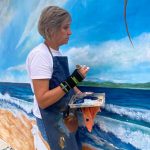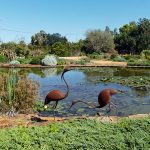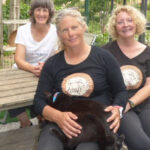An exclusive Tomorrow interview with Eurovision superstar Iolanda.
As you may have noticed, Eurovision was a little different this year. Boycotts, suspensions and protests; it had it all. And, as with every year, hopes were dashed and dreams fulfilled.
Portugal, represented by Iolanda, finished tenth, making it one of our best Eurovision placings of the last 25 years. It was a fantastic achievement for such a small country and for Iolanda. With a population of just 10 million, Portugal has fewer public votes to draw on than most nations and, unlike many other artists, Iolanda chose to sing in her mother tongue rather than English.

Iolanda’s Eurovision performance, and the coverage she received, did not pass without controversy. There were even suggestions that RTP, our state broadcaster, might submit a complaint to the European Broadcasting Union (EBU), which runs Eurovision. Throughout all this, Iolanda remained undaunted and true to herself. She even found the time to talk exclusively to Tomorrow about her incredible journey and her plans for the future.
Iolanda was born in the city of Figueira da Foz, in the district of Coimbra, but lived most of her formative years in a village near the city of Pombal. At the age of 14, she appeared on the televised talent show Uma Canção para Ti (A Song for You). Although she didn’t reach the final, her passion for performing was well and truly established. Iolanda lived with her parents near Pombal until she was 17 years of age, at which point she headed to Lisbon to study, eventually gaining a degree in Communication Sciences. Even while studying, Iolanda’s passion for music shone through, hence her parents also enrolled her in a music school.


After graduating, Iolanda headed to the UK, where she spent two years studying songwriting at the University of Sussex. As with all emerging artists, she’s had to work hard and has experienced her fair share of challenges. She performed on The Voice Portugal but wasn’t selected by the judges. She entered the Portuguese version of The Idol but didn’t reach the live stages. Crucially, however, Iolanda was resilient and continued to hone her stagecraft and songwriting skills. Just as importantly, Iolanda’s performances and work ethic were bringing her to the attention of TV and music executives.
Early in 2023, she released her debut EP, titled Cura (Cure) most of which she recorded while living in the Algarve, in Cabanas de Tavira. Iolanda’s music is distinct, blending a traditional Portuguese vibe with modern-day urban type influences, accompanied by stylish videos. All her songs – including ‘Grito’ (Shout), the song she performed at Eurovision – are heartfelt and autobiographical. She told me, “I write about my experiences and those songs (on the EP) reflect where I was at, at that time. There was more dark than light in my life. Things have changed since.”
It was late 2023 when Iolanda received the telephone call that would change her life – RTP wanted her to enter Festival da Canção, the annual song contest, the winners of which represent Portugal at Eurovision. When the call came, she immediately thought, “I already have a song that’s nearly completed and would be ideal.” ‘Grito’is the song she worked on and won Festival da Canção with. It was a career highlight and the pathway to Eurovision.

As for Eurovision, Iolanda sailed through the first semi-final, securing a place in the Grand Final, held in Malmö on Saturday, 11 May. Her performance at that final certainly caused a commotion. She wore Palestinian-inspired nail art and, at the traditional flag-waving parade, she wore an eye-catching dress made by the Palestinian clothing brand, Trashy Clothing. At the end of her breathtaking performance, flanked by five dancers, she looked straight at the camera and said, in English, “Peace will Prevail.”
The EBU has since confirmed that there were delays in uploading Iolanda’s Grand Final performance to Instagram and YouTube. These crucial delays almost certainly impacted the votes she received from the general public. The official Eurovision Instagram page posted a video of Portugal’s semi-final performance rather than the grand final performance. The EBU confirmed that the delay was due to the presence of pro-Palestinian elements’ in the Portuguese performance.

Tellingly, there was a sharp contrast between the votes Iolanda received from the public and the juries. The UK, France and Croatia juries all awarded her the maximum possible points. Iolanda would have finished sixth if the competition was based solely on the votes from the juries, as it once used to be. It would be a shame if all this controversy deflected from what was an outstanding performance.
Reflecting on her experiences at Eurovision, Iolanda said, “It was incredible, much bigger and more intense than I ever imagined. There are no words to describe the experience. I feel everything at once and I have all the emotions, but I’m pretty sure that what we did got where it needed to be. It wasn’t an easy journey, but we managed to find love and togetherness at a time when everything seemed otherwise and that’s where we must focus, for peace to prevail, because there’s so much to do.” Iolanda added, “I’m very proud of my team. It fills my eyes with tears from so much work and sweat they put into every moment of this adventure.”

As for the future, Iolanda told me, “I want to learn from my experiences and continue with my art, and of course, to have people enjoy and appreciate my work”. She has three concerts scheduled, two of which are already sold out. Tickets for the remaining concert in Porto are selling fast. More dates will be added very soon, including here in the Algarve.
It was a pleasure meeting Iolanda, and everyone at Tomorrow wishes this mightily impressive and talented artist every success.
Instagram @iolandamusic
Main photo © Sarah Louise Bennett/EBU













